Iran’s Top Security Official To Sign Deal With Iraq
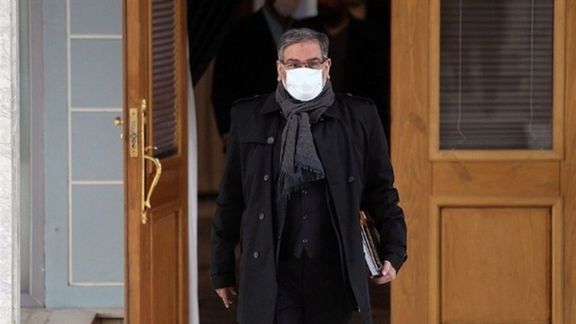
The secretary of Iran's Supreme National Security Council (SNSC) will sign a deal on border security with Iraq.

The secretary of Iran's Supreme National Security Council (SNSC) will sign a deal on border security with Iraq.
Ali Shamkhani traveled to Baghdad on Sunday as head of a delegation including the governor of the central bank and the assistant foreign minister for the Persian Gulf countries.
The trip is part of Iran’s renewed zeal to revive ties with regional neighbors and deepen relations with its global allies.
Shamkhani has visited China and the UAE in the last eight days, much needed in the face of a collapsing economy and growing political isolation on the world stage.
According to IRNA, the Iranian state news agency, the Secretary of SNSC will hold negotiations with Masrour Barzani, the Prime Minister of the Kurdistan Region, and Qassim al-Araji, the Iraqi National Security Advisor on the issue of border security.
Shamkhani signed a pact with the Saudis earlier this month to resume bilateral political ties with the mediation of China.
Shamkhani also visited Abu Dhabi and Dubai last week, meeting senior officials of the United Arab Emirates.
Iraq has played an important role in the recent negotiations between Tehran and Riyadh.
Face-to-face negotiations between delegations from Iran and Saudi Arabia, with the mediation of Iraq, began in Baghdad in 2021, and Oman also played a role in the talks.
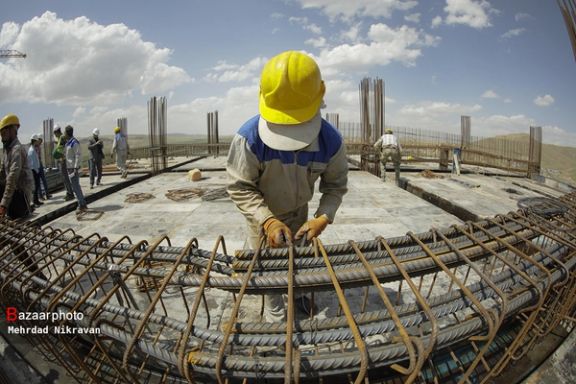
Officials in Iran are busy haggling over minimum wage for the new year beginning Tuesday, as inflation is soaring and the rial losing half of its value in six months.
A 15-hour-long session of the Supreme Labor Council ended on Saturday without reaching a final figure for the next year’s minimum monthly wage. The minimum needed for an average family to simply survive is about $310 to $390 a month, but even if the government manages to double the current minimum salary of around $100, it will fall way short of the amount needed.
The Supreme Labor Council, which consists of representatives of workers, employers, and the government, is the Islamic Republic’s mechanism to determine the salaries of the workers, in the government controlled economy.
The government has already decided to give its employees both in the administrative bureaucracy and its business enterprises a mere 20-percent raise.
Labor representatives insist that next year’s minimum wage in the non-governmental sector should be on par with the inflation of over 50 percent, but government representatives are of the idea that salaries should increase at about the same rate that public-sector employees are set to receive.
Labor groups walked out of the Friday meeting as a sign of protest, but they returned to bargaining at the request of the labor minister.
According to the centrist website Entekhab, pundits believe that the Council will settle on a final figure of about 70,000,000 to 80,000,000 rials (between about $155 to $180 at today’s exchange rates). The government and employers are pushing for these figures, but labor rights activists say that according to the inflation rate and official statistics of the poverty index, next year's wage figure should not be set below 100,000,000 rials (about $220).
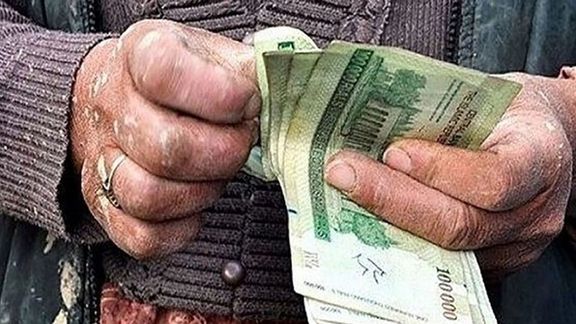
According to the International Labor Organization, the purpose of minimum wages is to protect workers against unduly low pay.
According to Iran’s Minister of Cooperatives, Labour and Social Welfare Sowlat Mortazavi, the final session will be held on Sunday, the last working day of the Iranian year. In addition to Mortazavi, Minister of Economic Affairs and Finance Ehsan Khandozi and Minister of Industry, Mines and Trade Reza Fatemi Amin represented the administration of President Ebrahim Raisi in the session.
When the government submitted the budget bill to the parliament in January, it sought to significantly increase the minimum monthly salary for the next Iranian year (starting March 21) but considering the steep devaluation of the rial in February, this seems out of reach.
The impact of rial’s fall will be highly reflected in the real value of the government’s proposed minimum wage increase of 20 percent for the next year. Since early December, the rial has fallen by around 30 percent. Many commodities already cost at least 30 percent more than the wage increase for government employees which will come into effect on March 21.
Iran has one of the lowest minimum wages in the world, but wages were increasing from 20 years ago to about 10 years ago when the minimum wage hit a record high of about $275 a month in 2010. This coincided with the time when the United Nations Security Council began imposing sanctions to force Tehran to roll back its nuclear program.
In January 2023, minimum wages in the EU member states ranged from $410 per month in Bulgaria to $2,500 per month in Luxembourg.
Iranian workers were earning more than $300 a month before the United States imposed sanctions in 2018, which pushed Iran’s currency almost ninefold lower, creating inflation that wages have not kept up with.
Rising prices and economic hardship have led to repeated labor strikes and nationwide protests since 2017, even before the imposition of US sanctions. Iran’s centrally controlled economy is inefficient and not conducive to foreign investments, with high reliance on oil exports.
The only reprieve can come from a suspension of US oil export and international banking sanctions if Iran would agree to a deal with the United States and its chief European allies. However 18 months of talks hit a dead-end in September and sanctions remained in place.
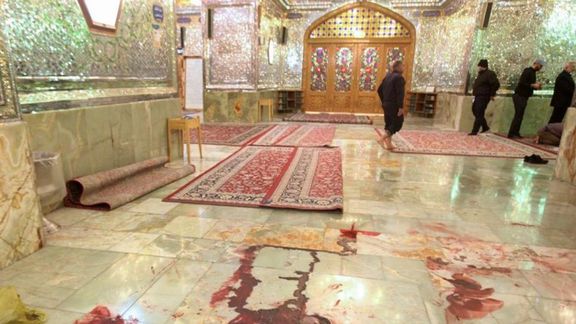
An Iranian court has handed out death sentences to two men over an attack on a Shiite shrine in Iran that killed 15 people in October and was claimed by the militant group Islamic State.
Fars Province judiciary head Kazem Mousavi said the two men had been found guilty of charges including "spreading corruption on earth" and acting against national security, the official news agency IRNA reported, adding that the sentences can be appealed.
CCTV footage broadcast on state TV showed the attacker entering the popular Shah Cheragh shrine in the southern city of Shiraz after hiding an assault rifle in a bag and shooting as worshippers tried to flee and hide in corridors.
The gunman, identified as a citizen of Tajikistan, later died in a hospital from injuries sustained during the attack.
The two men sentenced to death said during the trial that they had been in contact with the Islamic State in neighboring Afghanistan and helped organize the attack, Iranian media reported.
Three other men received jail sentences ranging from five to 25 years in the trial, Mousavi said, adding that several other "Daesh (Islamic State) suspects linked to this case" were awaiting trial.
ISIS took responsibility for the attack on the Shahcheragh in Shiraz on October 26, but some questioned the Islamic Republic’s account saying it was staged by the regime itself to distract attention from nationwide protests.
With reporting by Reuters
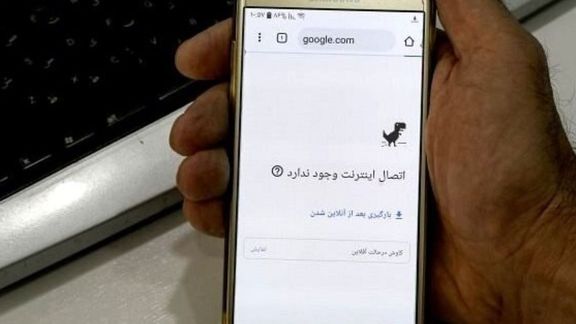
Amid reports that Iranians have lost more than $770 million due to deliberate government internet outages in 2022, authorities try to play down the impact.
Iranian Minister of Information and Communications Technology Issa Zarepour said Friday that there is no accurate data regarding the damage from internet access restrictions. However, independent VPN review website Top10VPN said in its annual that the economic impact was about $773 million in 2022.
While in dollars this might not appear to be a staggering figure, in local currency it is hundreds of trillions of rials and a huge loss for an economy straddled by US sanctions, inefficiency and corruption.
As nationwide anti-regime protests began in September, the government started to disrupt access to the internet to prevent news about the unrest being disseminated both inside the country and abroad. It also aimed at preventing protesters from communicating with each other. Internet disruption lasted for weeks.
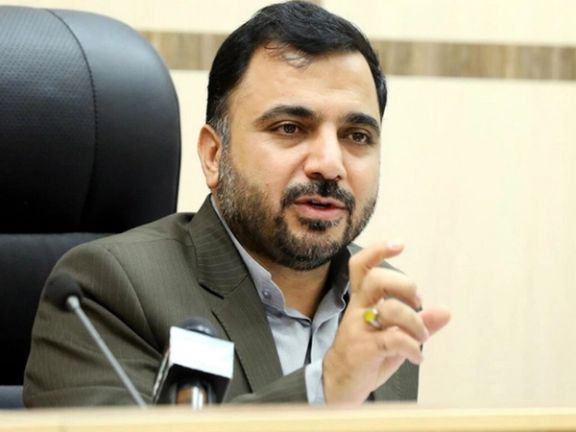
Intermittent disruption have continued in 2023, mostly coinciding with protests. The latest one occurred on March 7, as Iranians were holding a nationwide rally to protest the regime's inaction or possible involvement in the face of poisonous gas attacks on schoolgirls in recent months.
Drawing widespread criticism on social media, Zarepour, however, rejected the estimates by the company – and any other foreign source for that matter – saying that "there have been dozens of assessments by foreign sources that cannot be relied upon." He added that the Islamic Republic itself has not done any evaluation over the losses caused by the Internet restrictions.
Earlier in the month, Statista -- an online platform specialized in market and consumer data – said Iran’s blocking access to social media sites and news outlets was second only to Russia in 2022, affecting almost 72 million people
A report released in January said that due to extensive internet and social network restrictions, 20 percent of people lost their online jobs in the last four months of the previous year. According to Jobvision website, 46 percent of organizations suspended or postponed more than half of their recruitment programs due to the recent internet restrictions, and 45% of companies or businesses that depend on the Internet have decided to reduce their payments or had to pay wages by delay.
The computer trade union of Tehran -- or Tehran ICT Guild Organization -- announced in November that almost half of the Internet service providers in had seen a 50-percent drop in sales due to disruptions, censorship, and Internet shutdowns during the protests. The union's secretary Alireza Keshavarz Jamshidian went on to say that about half of the Internet providers lost over 500 million rials (around $1,400) a day, as sales dropped. However, he added, one-fifth of the companies say they suffered between $2,800 and $14,000 loss a day.
Curfew-style shut down of the internet has a highly damaging impact on several industries including food, medicine, and steel production, especially on small businesses and farmers. The E-Commerce Association in Tehran announced last year that the internet shutdown costs Iran $1.5 million per hour.
Despite all the losses due to the government restrictions, the cash-strapped administration of Ebrahim Raisi has issued a new decree to collect eight percent royalty fee from video call services of mobile operators in the country.

The leader of Iran's centrist Executives of Construction Party has welcomed the idea of a "council of moderate figures" to inject rationality into Iranian politics.
Reformist circles have suggested five top political figures as possible members of the proposed council, as a vehicle to organize forces opposed to the ruling hardliners.
However, the party's leader Hossein Marashi while welcoming the proposal said that forming the council is not possible with the political figures mentioned by others.
Marashi argued that former reformist President Mohammad Khatami, former parliamentary speakers Ali Larijani and Ali Akbar Nateq-Nouri, former president Hassan Rouhani and Ayatollah Ruhollah Khomeini's grandson Hassan Khomeini are not capable of taking the lead to form a council of moderates.
He avoided mentioning his reasons for dismissing the heavyweights, because after all, they are considered fellow reformists.
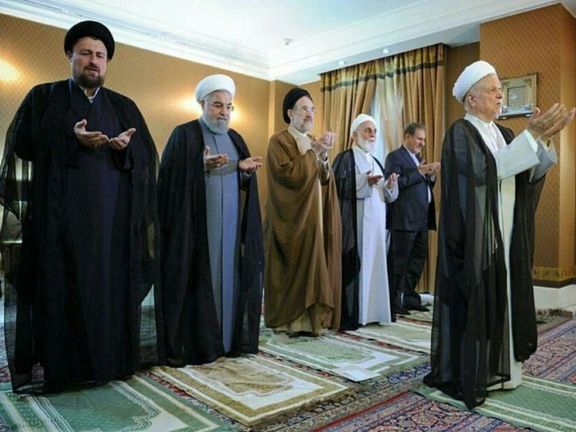
"A good idea does not necessarily mean that it can happen," said Marashi, adding that many other Iranians also want a moderate government in Iran, but the country's situation is such that moderates cannot have a voice while an all-conservative government is running the affairs of the state. Marashi was likely alluding to the disqualification of reform minded and moderate candidates in the previous parliamentary and presidential elections in 2020 and 2021.
However, he added that the Executives of Construction Party welcomes the idea as it can bring about a balance on the Iranian political scene. He said omitting the moderates altogether is neither possible nor desirable.
The idea of a political comeback by Iran's moderates was first put forward in February when it was said that a moderate council would form a shadow government. However, even then, it was clear for political analysts that under the circumstances it was unlikely that Supreme Leader Ali Khamenei and radical conservatives around him would ever allow the moderates to become politically active again.
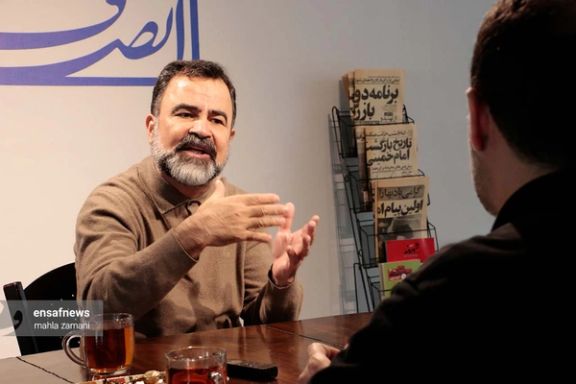
However, as the Iranian government has become weaker after months of protests since September 2022, some politicians including former lawmaker Kamaleddin Pirmoazen have come to the conclusion that this is the right time for Iran's moderates to make a comeback and compete with ultraconservative Paydari Party in the next parliamentary election in early 2024.
Pirmoazen told Ensaf News website that a council of moderates has already been formed unofficially. He argued that the rivalry between the moderates and radicals in Iran will be a confrontation between the advocates of totalitarianism and the supporters of people's rule. He added that "The ruling Paydari Party wants political power only to serve the interests of one small group of people in Iran rather than thinking of bringing about an improvement in people's livelihood, and eliminating poverty.
The politician also argued that the radicals have made the system so rigid it does not even allow traditional conservatives to be politically active and influential. However, the country's current situation, in which over 60 million people cannot survive without cash handouts, calls for political participation of others who wish to improve the situation. A large part of conservatives have now realized how badly the ultraconservative government has damaged the country.
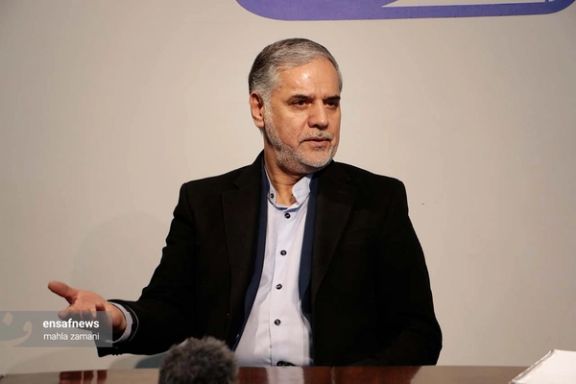
On the other hand, an ultraconservative former lawmaker, Hossein Naqavi Hosseini said some of some of those named as possible members of the Council of Moderates, are not even moderate! Naqavi added, "Among the names you mentioned, only Ali Larijani could be characterized as a moderate. Others, have at times taken radical stances that does not make them moderate."
Pointing out that during recent protests Iranians shunned both reformists and conservatives, Naqavi added that "during the past three decades, ultraconservatives (Presidents Ahamdinejad and Raisi) and reformists (Presidents Khatami and Rouhani) had equal chances to run the country, but none of them were successful. Perhaps that is why some disillusioned politicians are planning to introduce a third group under the name of moderates."
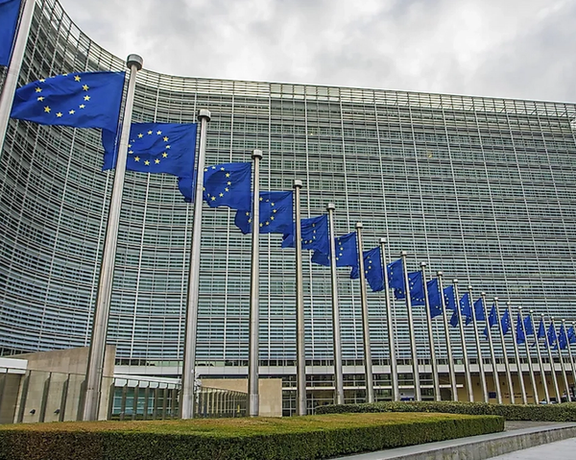
Sources say the European Union intends to impose sanctions on eight Iranians and an organization that had a hand in suppression of protests following the death in custody of Mahsa Amini.
EU countries have agreed to take new punitive measures against those responsible for the repression, the Dutch website De Telegraff quoted some sources as saying.
The bloc’s foreign ministers still have to approve the sanctions on Monday at their meeting in Brussels, but it is expected to be adopted.
The designated individuals and organizations will no longer be allowed to enter the EU and can no longer access any assets in the union. The EU has so far imposed such sanctions on 196 Iranians and 33 Iranian organizations and companies including prominent politicians and security officials.
The latest round of sanctions from the EU in late February included Iran's Culture Minister Mohammad Mehdi Esmaili for persecuting artists and filmmakers and also Education Minister Yousef Nouri for suppressing students.
The European Parliament has called on the EU to list the Revolutionary Guards as a terrorist entity, blaming it for the repression of domestic protests and the supply of drones to Russia.
However, the 27-nation bloc has so far stopped short of blacklisting the IRGC as a terror group, despite calls from Berlin and Amsterdam.